This summer the Studio will pilot a new fellowship program with the help of the University of Iowa Graduate College and the Studio Steering Committee. Nine current graduate students have been named Summer Studio Fellows. The students will soon take part in an 8-week course that provides mentored digital scholarship experience, as well as training in skills and tools they might use as they pursue innovative ways of thinking about and sharing their creative endeavors. Below you can read more about new fellows and a description of their proposed projects.
Hayder Alalwan, PhD student, Chemical and Biochemical Engineering Department
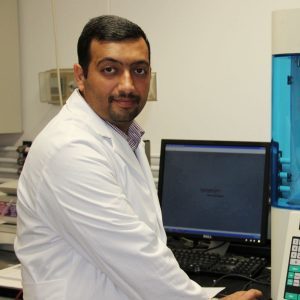 Currently working on a PhD in the Chemical and Biochemical Engineering department, Hayder Alalwan will continue work on a project started in the Spring of 2014. He will explore the creation of a website to publicly share information on chemical looping combustion (CLC). That process process uses the lattice oxygen molecules of metal oxides to decompose the gas, instead of air, which minimizes formation of pollutant byproducts such as NO2, N2O, or NO, which form when the reaction occurs in air (e.g., N2 and O2). In addition, the CLC process is highly efficient at decomposing gas with little to no side reaction. Hayder’s work will help bring his research findings to a broader public as part of his work in science communication.
Currently working on a PhD in the Chemical and Biochemical Engineering department, Hayder Alalwan will continue work on a project started in the Spring of 2014. He will explore the creation of a website to publicly share information on chemical looping combustion (CLC). That process process uses the lattice oxygen molecules of metal oxides to decompose the gas, instead of air, which minimizes formation of pollutant byproducts such as NO2, N2O, or NO, which form when the reaction occurs in air (e.g., N2 and O2). In addition, the CLC process is highly efficient at decomposing gas with little to no side reaction. Hayder’s work will help bring his research findings to a broader public as part of his work in science communication.
Alexander Ashland, PhD student, English Department
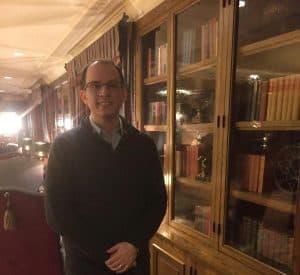 Alexander Ashland plans to expand on his work of Mapping Whitman’s Correspondence, integrating new data into an existing database, dedicating time to revisiting the existing prototype, and exploring the possibilities for implementing crucial features, such as search functionality, timescale manipulation, dynamic proportional symbols, and filterable keywords. Ashland’s current data has been gathered from the Civil War, Reconstruction (1867-1876), Post Construction (1877-1887), and Old Age (1888-1892) eras.
Alexander Ashland plans to expand on his work of Mapping Whitman’s Correspondence, integrating new data into an existing database, dedicating time to revisiting the existing prototype, and exploring the possibilities for implementing crucial features, such as search functionality, timescale manipulation, dynamic proportional symbols, and filterable keywords. Ashland’s current data has been gathered from the Civil War, Reconstruction (1867-1876), Post Construction (1877-1887), and Old Age (1888-1892) eras.
Sonia Farmer, MFA student, Center for the Book
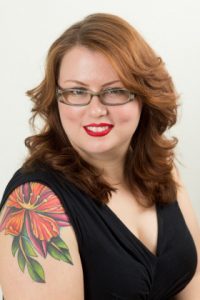 Sonia Farmer plans to launch a podcast that shares the rich world of Caribbean literature. The podcast will provide Caribbean writers with a platform share their writing, and grant people easy access to a multitude of voices. Farmer comes to us from the UI’s Center for the Book to hone her digital editing skills and develop the platform.
Sonia Farmer plans to launch a podcast that shares the rich world of Caribbean literature. The podcast will provide Caribbean writers with a platform share their writing, and grant people easy access to a multitude of voices. Farmer comes to us from the UI’s Center for the Book to hone her digital editing skills and develop the platform.
Andrea Lakiotis, MFA student, Literary Translation Program
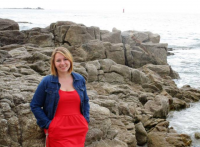 Andrea Lakiotis will explore online digital publishing while engaging with translation theory and practice. She brings experience in digitizing data, mapping, and code to the digital translation work she will be doing with the Studio.
Andrea Lakiotis will explore online digital publishing while engaging with translation theory and practice. She brings experience in digitizing data, mapping, and code to the digital translation work she will be doing with the Studio.
Caitlin Marley, PhD student, Classics Department
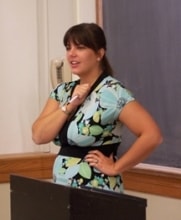 Classics student Caitlin Marley plans to analyze Marcus Tullius Cicero’s corpus through computing algorithms by using his orations and social network. With this information she will map the “emotional plot” of the orations as well as the networks across space and time.
Classics student Caitlin Marley plans to analyze Marcus Tullius Cicero’s corpus through computing algorithms by using his orations and social network. With this information she will map the “emotional plot” of the orations as well as the networks across space and time.
Ben J. Miller, PhD student, Psychological and Quantitative Foundations Department
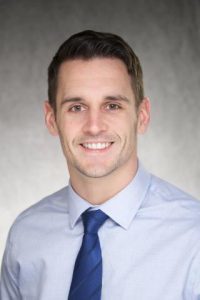 Ben J. Miller studies the educational needs of pediatric patients and their families. Efficient and effective education plays a large part in regard to their care. This summer, Ben will refine his digital design skills in service to educating parents on using distraction to help their children cope during painful medical procedures. Ben is designing an infographic for use in pediatric waiting rooms that demonstrates how to harness the power of their smartphones and tablets for distraction.
Ben J. Miller studies the educational needs of pediatric patients and their families. Efficient and effective education plays a large part in regard to their care. This summer, Ben will refine his digital design skills in service to educating parents on using distraction to help their children cope during painful medical procedures. Ben is designing an infographic for use in pediatric waiting rooms that demonstrates how to harness the power of their smartphones and tablets for distraction.
Arianna Russ, MFA student, Dance Department
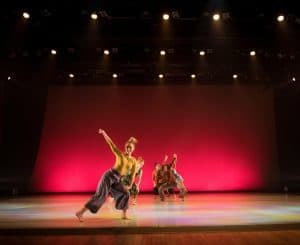 As an MFA student in Dance Performance, Arianna Russ explores the integration of digital media into her artistic work. In collaboration with Dance and Theatre Arts Assistant Professor Dan Fine, Arianna will deepen her understanding of motion capture and digital artistic practice.
As an MFA student in Dance Performance, Arianna Russ explores the integration of digital media into her artistic work. In collaboration with Dance and Theatre Arts Assistant Professor Dan Fine, Arianna will deepen her understanding of motion capture and digital artistic practice.
Katherine Wetzel, PhD student, English Department
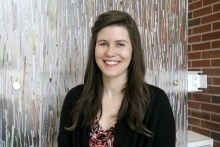 As a doctoral candidate in the department of English, Katherine Wetzel plans to continue her work on Met-Memory that she is currently constructing as part of her Studio Scholars Initiative. This project examines the tensions within local, national, and global expressions of Britishness as they occur in late-Victorian literature. The summer fellowship will also provide her with opportunities to explore the place of theory within the digital humanities.
As a doctoral candidate in the department of English, Katherine Wetzel plans to continue her work on Met-Memory that she is currently constructing as part of her Studio Scholars Initiative. This project examines the tensions within local, national, and global expressions of Britishness as they occur in late-Victorian literature. The summer fellowship will also provide her with opportunities to explore the place of theory within the digital humanities.
Mary Wise, PhD student, History Department
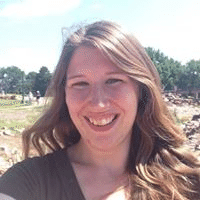 A PhD candidate in the History Department, Mary Wise plans to construct an interactive and publicly accessible map that examines the American Indian earthwork excavations in the Upper Midwest between 1890 and 1930. With training and support from Studio staff, she sees this project leading to the creation of an all-digital history dissertation.
A PhD candidate in the History Department, Mary Wise plans to construct an interactive and publicly accessible map that examines the American Indian earthwork excavations in the Upper Midwest between 1890 and 1930. With training and support from Studio staff, she sees this project leading to the creation of an all-digital history dissertation.